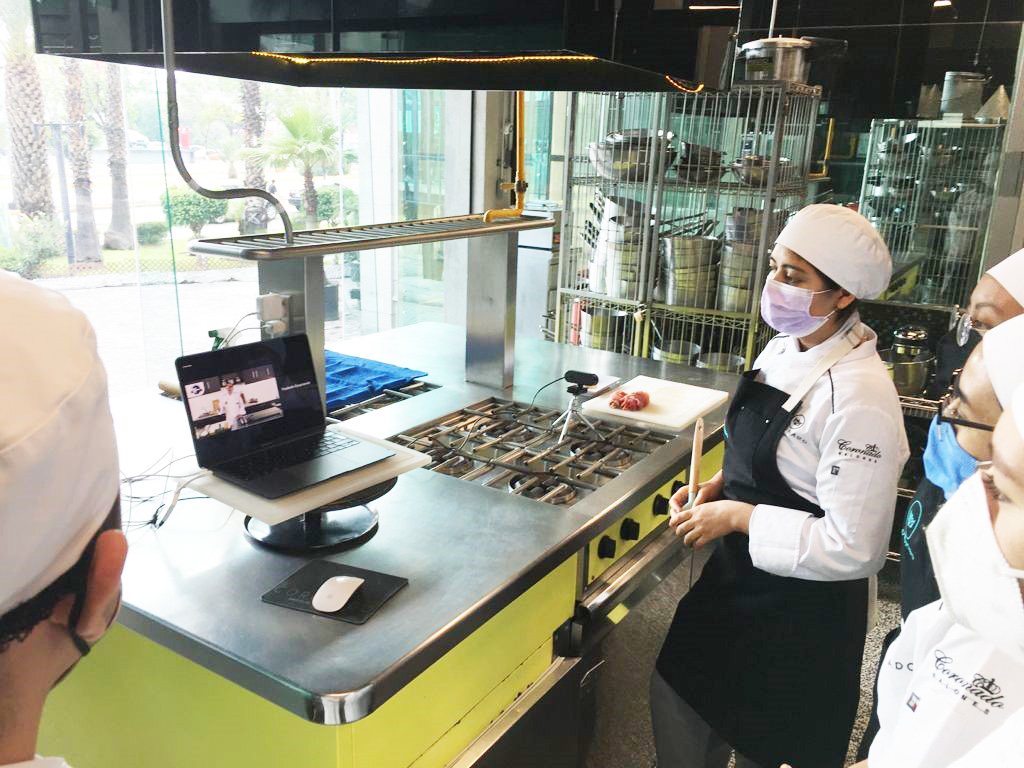 Online classes teach real world lessons
Online classes teach real world lessons
Jul 15, 2021
MEXICO CITY, MEXICO – In another example of a successful pivot relating to industry shifts because of the COVID-19 pandemic, USA Rice replaced in-person cooking workshops here with virtual lessons. Just last week, USA Rice Ambassador Chef Giuseppe Pasquale led an impressive cadre of 100 amateur and professional chefs through an online course sharing cooking techniques and 15 unique recipes that explored every element of U.S.-origin rice for the hotel, restaurant, and institution (HRI) sector. Nutritionists Guadalupe Esquivel and Carmen Ruiz made guest appearances, educating participants about the health benefits of rice.
Another cooking series, consisting of five online sessions, will debut in August followed by a third video series in October.
The webinars are produced in partnership with Coronado Culinary Arts Institute of Mexico, Ambrosia Culinary Center, Superior Institute Mariano Moreno, and the Association of Restaurants, Condiments, and Prepared Foods (CANIRAC). Upon completion of the rice curriculum, each participant receives a signed diploma certified by the culinary schools.
"The HRI sector has been challenged to innovate due to the impact of COVID-19 and its incumbent restrictions on foodservice,” said Asiha Grigsby, USA Rice director of international promotions. "We’re encouraged by how these operators have responded and hopeful that the lessons learned through our webinar series on best practices and the economic benefits for utilizing U.S.-origin rice will be implemented into the country’s general restaurant culture."
USA Rice has a robust portfolio of promotional activities executed in Mexico annually. Last year more than 200 virtual activities were conducted here focusing on the trade and consumers.
Mexico is the number one export market for U.S.-origin rice. In 2020, 614,000 MT of rice was exported to the country at a value of $245 million dollars.